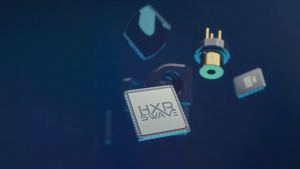Apple Goes Judge Dredd: Stops Lawsuits, Jailbreakers in One Day – Mobile News Roundup
Just as we saw yesterday, there’s quite a lot happening in the Mobile World Congress this week.
But Apple is in the news for more than just its phone (which has its own bit of news); they’re also in the news for a big no-no when it comes to app purchases.
In response to a lawsuit over “bait and switch apps”, Apple has agreed to give users who were affected a $5 iTunes credit, or cash, if the amount lost was more than $30. The apps in question are those that were free to download, but that offered virtual currency for sale within the game, encouraging children to buy virtual items, resulting in massive credit card fees for unsuspecting parents.
The settlement is awaiting preliminary approval from a federal judge, but once received, Apple will send email notifications to accounts that made virtual currency purchases.
In other Apple news, users who plan on jailbreaking their IOS devices need to do so as soon as possible, because Apple is currently beta-testing an update that kills Evasion, the latest jailbreaking tool.
It still may take a month or longer for Apple to roll out the patch to users, but an update is definitely on the way.
Firefox OS, the open Web Device operating system we first discussed yesterday, is already getting support from major phone manufacturers. Sony, for instance, announced its commitment to launch a Firefox OS device in 2014. One can only assume from this move that Sony is looking to dive headfirst into the inexpensive mobile market, and you can surely bet that we will be watching this development very closely.
In more Mozilla news, despite the fact that Firefox 19 was just released, Mozilla released information about the beta version of Firefox 20, already available on Android. The new per-tab private browsing feature allows users to alternate between normal and private tabs within the same session, and new shortcut options for the home screen allow for even greater customization.
Most importantly for many of us, the browser also supports additional devices, and lower-end phones, so for those of you interested in bleeding edge software, feel free to take a look.
Spotify, marked with great success has also been marked as a target for companies like Google. According to sources with knowledge of the situation, Google is in negotiations with major music labels with plans to roll out its own music streaming service sometime in the third quarter.
Plans are to make the service available to all handsets, not just Android, and you can bet they won’t be the only alternative on the market. Apple is also planning a music streaming service, but it’s unknown when the feature might be made available to users.
The hype for the Galaxy S4 is currently good news for Apple, as the iOS is making large gains in the enterprise market. Mobile device management vendor Good Technology reports that nearly 77% of devices activated by its corporate customers in the fourth quarter of 2012 were powered by iOS, up from 71% a year earlier. Android came in at 22.7%, down from 29%.
Though Android sales trumped iOS devices for a large chunk of the year, there’s no question that people are holding onto their pocket books in anticipation for the S4’s release this Spring. We will surely check back then to see how much market share they really lost, once the dust settles.
Sony’s planned Firefox OS handset shows the company’s interest in emerging markets, and they aren’t alone. At Mobile World Congress, Nokia just announced a pair of candybar phones that it hopes will be competitive in emerging markets. The Nokia 105 and 301 are simple, inexpensive feature phones with an extraordinary battery life of 30 days stand-by time. At $20 and $85 respectively, the sheer affordability could be the most attractive feature.
Additional features include a flashlight and FM radio for the Nokia 105, and a 3.2 megapixel camera with panorama, sequential shot, and self-portrait modes, as well as Exchange Mail and Nokia Xpress Internet for the Nokia 301. Both handsets will be available in Q2 of this year.
Last but not least, Intel is also making a bit of a show at the Mobile World Congress, debuting a new series of hefty mobile processors.
Mobile manufacturers generally value battery life over raw power, and historically speaking, Intel chips tend to have issues with power consumption. In an effort to shed themselves of this power-hog image, Intel’s latest mobile processor line, the Clover Trail Plus, is designed to be not only more power efficient, but also have the brute force to carry Intel into the future.
But Intel’s plans don’t just stop there.
Intel has also announced the successor to the Clover Trail Plus line called Bay Trail. Codenamed Merrifield, the new Bay Trail architecture will not only be Intel’s first quad-core mobile processor, but the new architecture will downsize Intel’s chip size from 32 nanometers to 22.
Intel is aiming to push the new chip in the low-end market with an upcoming device partnership with A-sus, going so far as to give some details about a new 7 inch Android tablet. Despite all of these improvements, Intel still has yet to release a multimode or 4G LTE capable chip, but they are looking the future, commenting that they will be releasing a multimode version of its processor in the coming months.
And that was all for the news today. For those of you who want to keep up with what’s coming out next, don’t forget to watch us and all our news coverage on the Morning NewsDesk Show with Kristin Feledy.
photo credit: elsonpro via photopin ccem>
A message from John Furrier, co-founder of SiliconANGLE:
Your vote of support is important to us and it helps us keep the content FREE.
One click below supports our mission to provide free, deep, and relevant content.
Join our community on YouTube
Join the community that includes more than 15,000 #CubeAlumni experts, including Amazon.com CEO Andy Jassy, Dell Technologies founder and CEO Michael Dell, Intel CEO Pat Gelsinger, and many more luminaries and experts.
THANK YOU













